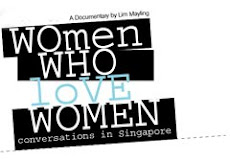SINGAPORE : The Singapore government is proposing new laws to better protect young people and those with mental illness from being sexually exploited.
But it is also leaving sexual conduct between consenting adults private.
As part of an extensive review of Singapore's primary criminal legislation, the new Penal Code proposes to de-criminalise anal and oral sex, as long as it's done 'in private between a consenting adult heterosexual couple, aged 16 years and above'.
Some 600 men go to Batam every week for sex with under-aged girls, and most of them are Singaporean men, according to a study conducted earlier this year.
To send a message that all children should be protected from sexual exploitation, the Home Affairs Ministry is proposing new laws to punish those who operate, promote, or go on child sex tours.
But the State wants to stay off private bedroom matters.
Anal and oral sex will no longer be illegal unless the person is forced to perform the act without his or her consent, or if the person is under 16 years of age.
Strict liability will also be extended for those who engage in sexual activities with minors under 14 years of age.
Tougher penalties will also be introduced for outraging the modesty of a minor under 14 years of age.
And in line with the Restricted 21 (R21) film classification, the offence for a person to sell, hire, distribute, exhibit or circulate any obscene object to persons under 20 years old, will be raised to 21 years of age.
The Ministry also wants to change the scope of offences under incest and rape.
Current laws do not allow for prosecution against a husband for raping his wife because he enjoys marital immunity.
The new Penal Code aims to remove this legal protection, on the condition that the wife is legally separated from her husband, or has taken a Personal Protection Order to prevent her husband from having sex with her.
But some say it doesn't go far enough.
Associate Professor Kumaralingam Amirthalingam, a law lecturer with the Faculty of Law at NUS says: "I think we should move ahead and get rid of the immunity in its entirety. Yes, there may be difficulties in the area of enforcement but it's no different from any other area of criminal law. It's difficult to prove but we'll leave it to the criminal system.
"If we have a good prosecutor and good judicial system, then the truth should surface. And I don't think we need to maintain this immunity.
"One example of domestic violence is sexual abuse of the spouse. And to deny the spouse of prosecution of rape seems to be a fundamental violation of the person's rights. Marital rape cannot be condoned, and there should not be an immunity. What the government is doing now is a welcoming step but I think it can go a little bit further."
On sex between homosexuals, the Ministry has plans to keep the status quo.
"These should essentially be seen as private matters within the home. One of the bigger issues is whether this is a signal by the government of greater acceptance of homosexuality in Singapore," says Associate Prof Kumaralingam Amirthalingam.
"I don't think the government is prepared to make a statement on this. But if you look at the history of prosecution under Section 377, which is the relevant provision here, I don't think you'll find any prosecutions of homosexual sexual activity between consenting adults within the home."
"So in that sense, it's a typical Singapore way of managing this issue without getting embroiled in the political and social problems that we're not ready to face," adds the law lecturer.
"I think the general feel is that we're still not ready to introduce major changes in these areas. I think the major changes would be what the government has said a few years ago, that it's all right to have homosexuals working in government departments. I think that's the major change," says Ellen Lee, member of the Government Parliamentary Committee for Home Affairs and Law. She is also the former president of Singapore Association of Women Lawyers.
Still, not everyone agrees.
"If you are a homosexual or a lesbian, I think you can get into trouble. We are talking about an inclusive society and being more broad-minded. Why do we want to keep these people away, out of the circle? I think we should be more broad-minded, more sympathetic and allow these people to be included in our society," says Subhas Anandan, president of the Association of Criminal Lawyers in Singapore.
"It's not necessarily for major legislative change to signal changes. But the legislation will only be changed when there is sufficient justification to warrant it, because the larger section of society think that it's time for those changes to take place," says Ellen Lee.
"With the introduction of the changes, we can expect that judges will be given more leeway. And taking into account the changes of people's behaviour, the different situations, I think now we've got a wider range of circumstances that may justify a more lenient sentence, a more community-based approach that we may really be in sync with society."
The Ministry is also proposing to repeal four laws which have become irrelevant or archaic.
It's also re-defining words like 'sexual', 'touching', 'penetration', and 'obscene' and elaborate on the concept of consent.
Lawyers say the proposed changes are in line with Singapore's push for a more open, compassionate society. - CNA /ls





